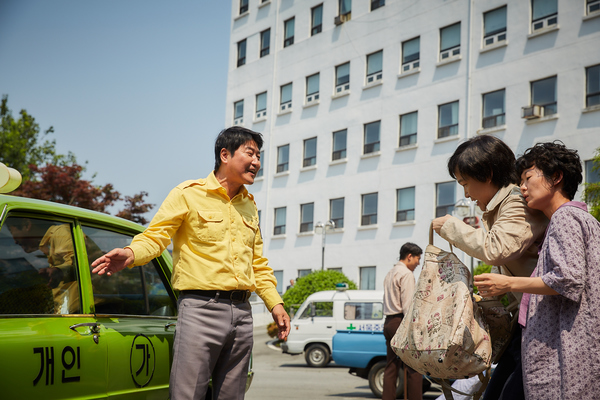




A Taxi Driver

May, 1980. Man-seob is a taxi driver in Seoul who lives from hand to mouth, raising his young daughter alone. One day, he hears that a foreigner is willing to pay a large sum of money for a drive down to Gwangju city. Not knowing that he’s a German journalist with a hidden agenda, Man-seob takes the job. From there, events unfold that change the lives of both men and the course of South Korean history.
Through Man-seob’s narrative, A Taxi Driver uses a touching personal story to symbolise a broader event - in this case, the Gwangju Uprising, which is one of the most significant events of the 20th century in South Korea. In May 1980, demonstrations against the dictatorial military government of Chun Doo-hwan were violently suppressed, and Korean media coverage of the event was censored. Despite this, information about the uprising spread through the efforts of foreign journalists, the most well-known of whom is Jürgen Hinzpeter, who is also depicted in the film. The Gwangju Uprising preceded other democratic movements during the late 1980s that pressured the regime into democratic reforms and ultimately led to free presidential elections in 1987.
The screening is organised by the Embassy of the Republic of Korea in Estonia and the University of Tartu Korean Culture Club.
Can't find a suitable screening? Leave us a message and we'll let you know when a new screening is added to the schedule.
Subscribe for updates







